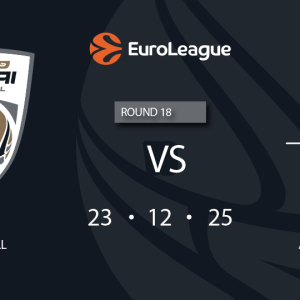In a desert city where rainfall is scarce, Dubai has long relied on innovative solutions to provide water to its residents, industries, and tourists. With rapid urban development and population growth, meeting Dubai’s water needs has required creative, sustainable solutions, making the emirate a leader in water production and conservation technologies. So, how exactly does Dubai get its water, and what systems are in place to ensure this precious resource remains abundant?
Desalination: Dubai’s Primary Water Source
The main source of water in Dubai comes from desalination, a process that removes salts and impurities from seawater to produce potable water. Dubai’s coastline along the Arabian Gulf makes desalination an ideal choice, giving the city access to an almost limitless supply of seawater that can be transformed into fresh water.
Desalination plants are critical to the city’s water infrastructure, with the largest facilities located in Jebel Ali and Al Maktoum. These plants produce about 99% of Dubai’s water supply, generating millions of gallons daily. The process, however, is energy-intensive, relying on a technique called multi-stage flash distillation, where seawater is heated and evaporated, then condensed into fresh water. Though efficient, Dubai is actively exploring methods to reduce the environmental impact of desalination to further sustainability goals.

Investment in Sustainable Solutions
Dubai has taken significant steps to enhance water sustainability by investing in solar-powered desalination and reverse osmosis technology, a more energy-efficient process compared to traditional desalination. The Dubai Electricity and Water Authority (DEWA) has set ambitious targets, aiming to increase the share of desalinated water produced using solar energy.
One major initiative is the Mohammed bin Rashid Al Maktoum Solar Park, which is expected to be one of the largest solar-powered desalination facilities globally. By harnessing renewable energy, Dubai aims to reduce its carbon footprint and achieve sustainable water production, addressing both environmental concerns and the need for long-term water security.

Groundwater and Recycled Water
Although desalination accounts for the majority of Dubai’s water supply, groundwater and recycled water also contribute to the emirate’s resources. Groundwater is primarily used in agriculture and landscape irrigation, helping to reduce the strain on potable water supplies. However, groundwater sources are limited due to the arid climate and are monitored carefully to avoid depletion.
Recycled water plays a significant role in Dubai’s water conservation strategy. Wastewater is treated and repurposed for non-potable uses, such as irrigation, landscaping, and industrial cooling. This approach minimizes waste, making sure that every drop of water serves a purpose in the city’s ecosystem. Dubai’s commitment to recycling water reflects a broader trend toward sustainable urban living, and the government continuously invests in infrastructure to improve recycling facilities and practices.
Future Plans: Securing Dubai’s Water Supply
Looking ahead, Dubai is actively exploring new strategies and technologies to ensure a reliable water supply. The city’s Dubai Integrated Water Resource Management Strategy 2030 aims to reduce water demand by 30% through conservation programs, enhanced recycling, and sustainable desalination practices. Educating the public on water conservation and promoting water-saving devices are key parts of the strategy.
Another future-oriented project is the aquifer storage and recovery (ASR) system, which stores excess desalinated water underground. This stored water can then be accessed in case of emergency or peak demand periods, ensuring a buffer against water shortages. This technique is a natural solution that prevents evaporation and keeps water accessible in a sustainable way.
FAQs about Dubai’s Water System
Q: Is Dubai’s desalinated water safe to drink?
A: Yes, desalinated water in Dubai meets all international health standards. The desalination process is closely monitored to ensure water quality, making it safe for residents and visitors alike.
Q: How does Dubai’s desalination impact the environment?
A: Desalination is energy-intensive, and traditional methods can harm marine ecosystems due to brine discharge. Dubai is actively working on reducing its environmental impact by investing in solar-powered desalination plants and implementing more sustainable practices.
Q: Are there any natural freshwater sources in Dubai?
A: Natural freshwater sources are scarce due to the arid climate, so Dubai relies heavily on desalination and groundwater. The emirate is also expanding recycled water use to optimize its resources.
Conclusion
Dubai’s water supply story is one of innovation, resilience, and forward-thinking. Despite being situated in a desert, Dubai has pioneered methods to meet the needs of its rapidly growing population, all while working toward sustainable solutions. From high-tech desalination plants to advanced recycling and storage projects, Dubai’s approach to water management highlights the city’s adaptability and commitment to providing for its residents in an eco-friendly way. Through ongoing investment in technology and public awareness, Dubai continues to secure its place as a global leader in water sustainability.
Click here to check UAE STORIES website .
Do follow UAE STORIES instagram .















